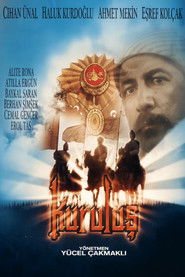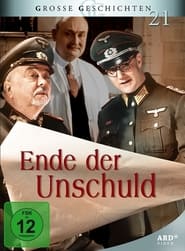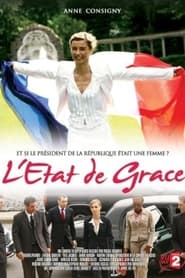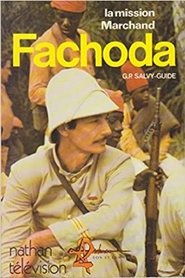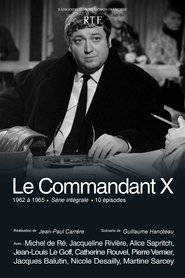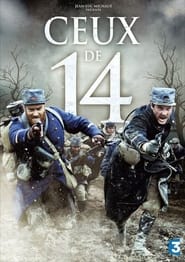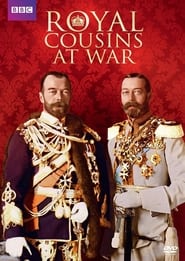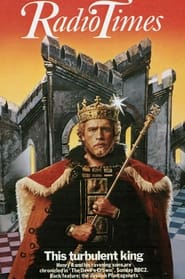War Politics TV Series - Page 76
-
When Duty Calls
2017
When Duty Calls
2017
Xu Long Bin is a reservist officer who saved Chen Jin Bao's life during a military exercise. Instead of being grateful, Jin Bao blames Long Bin for his damaged car. From then, the duo never see eye to eye. Lu Jun Guang becomes their mediator and the three men eventually became friends. Jun Guang is in love with Shen Yi Xuan, who cannot get over the memory of her dead boyfriend. While Bai Jing Yu, Jun Guang's childhood friend, is always at his side through thick and thin. New recruit Yao Wei Guo dislikes Yang Xian Feng and constantly picks on him. But Xian Feng proves himself to be a kind and compassionate buddy, and they eventually become good friends. Their friendship is tested when they fall in love with the same girl. Long Bin, Jun Guang and Jin Bao are patrolling a restricted military area when they encounter a terrorist attack. Will they be able to put their military skills to good use and stop the terrorist attack? -
Kamp Waes
2019
-
Kuruluş Osmancık
1988
-
凯旋在子夜
1986
凯旋在子夜
1986
-
手枪队
2016
手枪队
2016
-
靠山
2007
靠山
2007
-
End of Innocence
1991
End of Innocence
1991
star 5End of Innocence is a two-part television film that focuses on the work of the German Uranium Association during World War II. At Farm Hall in England, the ten German nuclear scientists interned there as part of Operation Epsilon learn of the dropping of the first atomic bomb on Hiroshima in August 1945. In flashbacks, the development of the German uranium project is recapitulated chronologically from the discovery of nuclear fission by Otto Hahn to the work of Kurt Diebner at the Heereswaffenamt to the experiments of the Kaiser Wilhelm Institute for Physics under Werner Heisenberg and Carl Friedrich von Weizsäcker at the Haigerloch research reactor in spring 1945. -
L'État de Grace
2006
L'État de Grace
2006
star 1L'État de Grace was a French television show that featured France's first female president. -
World War II: Total War
2018
star 6.5A Total War is all encompassing, a war without boundary or limitation. It is a war of material and morale. A war that mobilizes, destroys and displaces civilian populations. The Second World War was a war in which massive armies advanced, confronting whole populations with impossible choices. The manufacture of weapons transformed industry and the workforce; area bombing campaigns reduced cities to rubble; sieges doomed populations to starvation; racial policies sponsored campaigns of genocide. Told through archive footage and expert interviews, we learn how WWII shattered the boundaries between home-front and battlefield. -
토크멘터리 전쟁史
2016
토크멘터리 전쟁史
2016
-
Xiao Yan San Jin
2016
Xiao Yan San Jin
2016
In 1950 Shanghai, a former soldier leads a village of outcasts and exiles to transform barren land into a new home, all while uncovering spies and fighting for love and hope in a turbulent new era. -
Commandant X
1962
-
Ceux de 14
2014
Ceux de 14
2014
-
Royal Cousins at War
2014
Royal Cousins at War
2014
star 6.3At the time World War I broke out, the King of England, the Czar of Russia, and the Kaiser of Germany were first cousins. This two-part series looks at the role played by Tsar Nicholas II of Russia, Kaiser Wilhelm II of Germany and King George V of England, and their relationships with each other, in the outbreak of war. Mismanaging their countries and mishandling foreign policy, they failed to adapt to the forces of nationalism and democracy, and so brought tumbling down their own ideal of a Europe governed by the descendants of Queen Victoria. While it was war that delivered the final blow, this fascinating series shows how the problems had set in much earlier. A two part miniseries. -
尖刀队
2012
尖刀队
2012
-
The Devil's Crown
1978
The Devil's Crown
1978
star 7.3The Devil's Crown was a BBC limited series which dramatised the reigns of three medieval Kings of England: Henry II and his sons Richard the Lionheart and John. It was broadcast in thirteen 55-minute episodes between 30 April and 23 July 1978. Henry Plantagenet (latterly Henry II), sees his opportunity to seize the crown of England and create a kingdom of law and order. He cuts a deal with King Stephen in which Stephen will name him his heir, excluding his sons Eustace and William in exchange for a fragile truce. Stephen's sudden death elevates Henry to the throne. He may have been King of England, but the bulk of the Angevin Empire was in France, and it was this that Henry regarded as the Jewel in his Crown, maintained through a series of political marriages and complex allegiances. Henry pays homage to Louis VII, King of the Franks, for these lands, but it is clear that Henry is the shrewder and more ambitious of the two kings, having married Louis' ex-wife Eleanor of Aquitaine. -
21 Sarfarosh - Saragarhi 1897
2018
star 7.5In September 1897, 21 soldiers of the 36th Sikh regiment of the British Indian Army defend an army outpost at Saragarhi against an attack by over 10,000 Pashtun and Orakzai tribals. -
Railway Guerrilla
2005
Railway Guerrilla
2005


